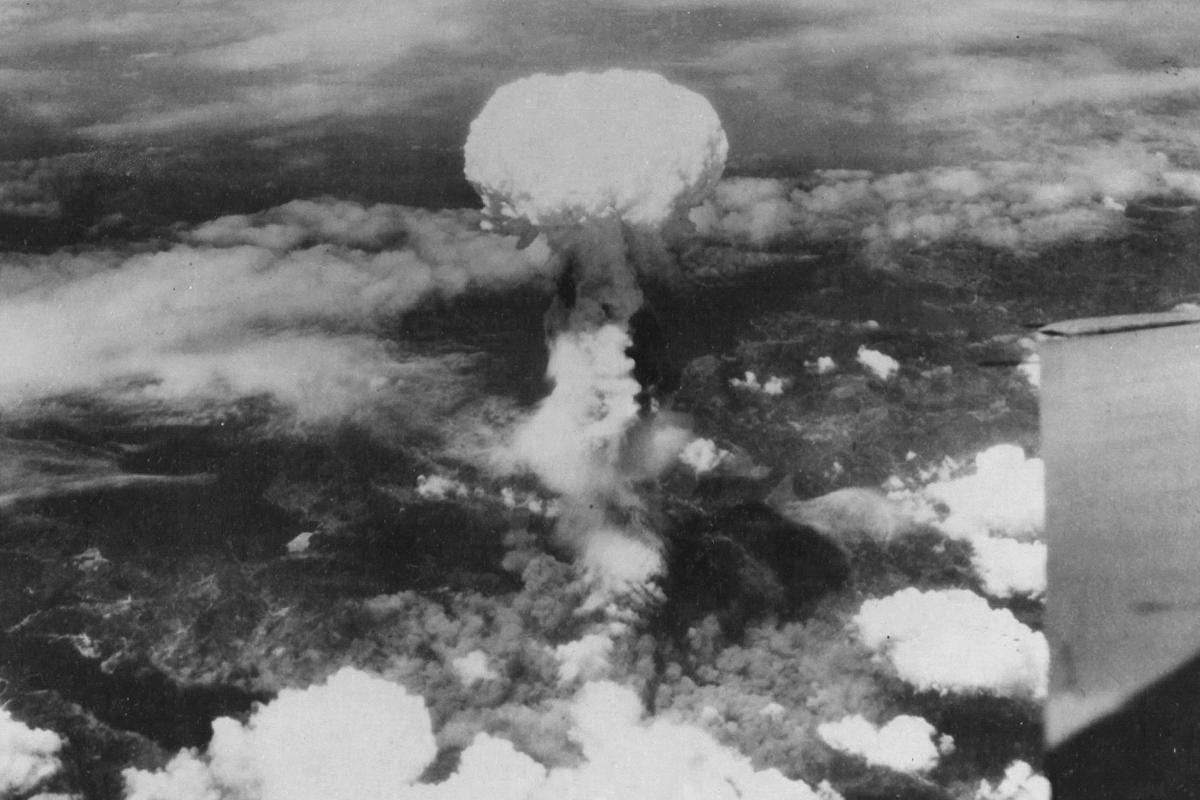Over the last few years, the folks at Mini Museum have been providing regular everyday people with incredible opportunities to own priceless scientific and historical artifacts. To date, they’ve shipped almost 1,000,000 specimens encompassing more than 150 different subjects, spanning billions of years of history, to more than 40,000 customers in 120 different countries. But their latest offering might just be the coolest one yet. Right now you can purchase a fragment of a Manhattan Project Shield Window. Or, if you happen to have insanely deep pockets, you can buy an entire window, completely intact and in pristine condition.

The Manhattan Project, of course, was the code name used for the United States’ World War II research and development project that ultimately produced the world’s first atomic bombs. One of the biggest and most ambitious scientific undertakings the world had ever seen, the Manhattan Project began in 1939 and cost $2 billion, which is equivalent to roughly $23 billion in 2020. The project employed over 130,000 scientists, engineers, technicians, and construction workers at more than 30 sites across the United States, including well-known locations such as Oak Ridge, Los Alamos, Trinity, and Hanford.
The legacy of the Manhattan Project is simultaneously glorious and horrifying. On the one hand, the project was an incredible technological achievement, pulled off by the greatest team of scientists the world had ever seen. It ushered in an age of unprecedented mastery of physics and nature and created a huge network of national science labs that pioneered technological breakthroughs for decades. That said, while the Manhattan Project brought a swift end to the horrors of World War II, it came at an incredible cost. An estimated 200,000 people were killed in the Hiroshima and Nagasaki bombings. And this newfound ability to inflict unspeakable horrors immediately changed the balance of global power and the course of human history.
For good and for bad, few scientific endeavors had a greater impact on the course of world history than the Manhattan Project. And now you can own a piece of this historic event regardless of your budget.

If you’re an eccentric billionaire with a fondness for ultra-rare collectibles, you might as well go big with this complete 54-inch Manhattan Project Shield Window. This specimen is a full-size leaded glass shield window from the Manhattan Project’s Hanford Site. Once installed in the T Plant Plutonium Recovery Building, engineers would look through this glass while extracting plutonium from irradiated fuel rods. Plutonium produced in the T Plant Plutonium Recovery Building was used for the Trinity test, the first-ever detonation of an atomic bomb on July 16, 1945, as well as the “Fat Man” atomic bomb dropped on Nagasaki on August 9, 1945.
This window is one of only a few completely in-tact specimens remaining from the Manhattan Project. It was originally sold by the government in the 1980s as part of the lengthy (and still ongoing) decommissioning of Manhattan Project sites. The yellow color of the glass is due to its 30 percent concentration of lead-oxide, which blocks blue and UV light and gives the glass its protective properties.
Unfortunately, given the rarity of this specimen, not to mention its connection to such an important moment in world history, if you want to add the full Manhattan Project Shield Window to your personal collection, it’s going to cost you $3.4 million.
Yes, million.
Luckily, Mini Museum is also offering fragments of Manhattan Project Shield Windows in varying sizes at a price regular people can actually afford.

The Manhattan Project shield window fragments come from leaded glass windows installed in the T Plant Plutonium Recovery Building, which produced the plutonium for the Trinity test bomb and “fat man” bomb dropped on Nagasaki. These fragments are a lot easier to display than the full window, which weighs in at a whopping 1,700 pounds. They are also considerably more affordable, ranging in price from $39 to $579.
The two smallest shield window fragments are enclosed in acrylic specimen jars, which come in glass-top riker display boxes. Larger fragments come in black display boxes similar to those used for jewelry. All fragments come with a small information card that serves as a certificate of authenticity.
While these shield window fragments are not radioactive, they do contain high amounts of lead-oxide. Thus, they should only be handled while wearing gloves.
This offering from Mini Museum is your chance to own an artifact from one of the most important scientific endeavors of all time. However, supplies are extremely limited. So if you want to add a Manhattan Project shield window, or just a window fragment, to your personal collection, make sure you place your order today.
Futurism fans: To create this content, a non-editorial team worked with an affiliate partner. We may collect a small commission on items purchased through this page. This post does not necessarily reflect the views or the endorsement of the Futurism.com editorial staff.
